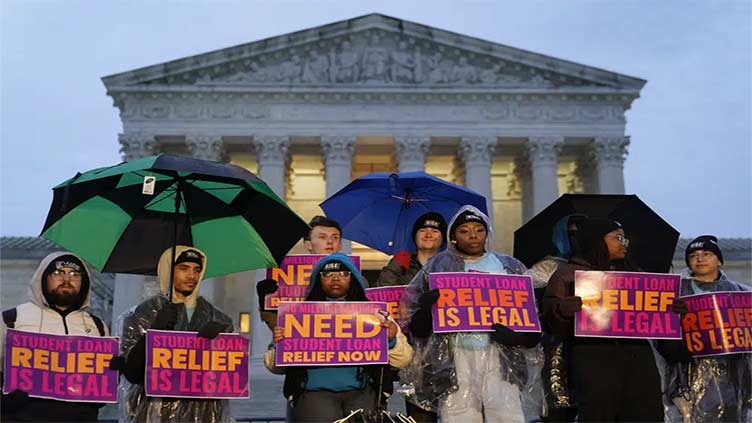By getting travel insurance, you may be prepared for unanticipated expenses both before and during your vacation. These include medical emergencies, flight delays or cancellations, evacuations, and misplaced bags. Insurance premiums range from four to eight percent of the overall trip cost for both local and foreign travel.
How Does Travel Insurance Operate?
The way that home, auto, and jewelry insurance works is identical to that of travel insurance. Travel insurance is offered to protect scheduled, nonrefundable trip expenses against unforeseen circumstances. An injury that cuts short your vacation, a delayed flight that prevents you from taking a cruise, or your bags being misplaced by the airline.
Purchasing Travel Insurance?
AIG Travel’s head of marketing and industry relations, Rhonda Sloan, says trip value, risk tolerance, and disruptive events influence insurance choices. “For example, a $15,000 cruise would be an investment that many would consider worth protecting If difficulties potentially jeopardize prepaid, nonrefundable trip charges, ” Sloan said in a chat.AIG Travel’s head of marketing and industry relations, Rhonda Sloan, says trip value, risk tolerance, and disruptive events influence insurance choices. For example, a $15,000 cruise would be an investment that many consider worth protecting.
The chance of encountering travel misfortunes like misplaced luggage, delayed or canceled flights, accidents during the journey, and other misfortunes is higher when traveling long distances or at a high cost.
Types of Travel Insurance
The majority of travel insurance policies provide coverage for lost luggage, emergency medical evacuation, medical expenses, trip cancellation, interruption, and delay. Different coverage limitations are offered by AIG Travel’s basic insurance plans for stand-alone journeys in the Deluxe, Preferred, and Essential categories. Travel insurance companies often provide “bundles,” which are customized insurance coverage added to your policy.
Purchasing travel insurance is often done for the purpose of having pre-departure trip cancellation coverage. Your travel insurance coverage covers pre-travel emergencies. The documents for insurance need to be carefully examined.
You are entitled to a full reimbursement of the nonrefundable, prepaid, prepaid trip deposits that you would have otherwise lost in the event of trip cancellation, depending on the specifics of your insurance policy. Some examples of often-mentioned reasons for travel cancellations are as follows: Events that may cause your trip to be canceled include your death, illness, or injury, as well as those of your traveling companion or close family members; a major family emergency; severe weather; an unexpected loss of work; unplanned jury duty; the bankruptcy of your travel provider; a nationwide transportation strike; and a national emergency.
To optimize your travel freedom, enhance your standard insurance policy with “cancel for any reason” coverage. Your travel policy price will increase by 50% with this add-on. However, you have 48 hours before departure to cancel for any reason. You can get back between 50% and 75% of the nonrefundable, prepaid travel expenses.
How Do I Choose the Finest Insurance?
You can customize your insurance. Allianz Partners U.S. head of external relations, Daniel Durazo, said that each insurance type needs to be examined to see if the benefits fit individual needs. According to his suggestion, the risk of loss in the event of an emergency or cancellation determines how much insurance is required.”
Verify your destination and policy selections. “Complete your homework,” says Sloan. Travelers, she advises, should be aware of the risks associated with their location, including severe weather and small-time crime. According to Sloan, travelers should thoroughly investigate any insurance plan they are thinking about in order to understand coverage limits, exclusions, and further policy upgrades.
To assist you in selecting a insurance plan, educate yourself about plan and coverage alternatives as well as the likelihood of different calamities at your intended destination.
What is Covered by Traditional Travel Insurance?
Generally speaking, insurance covers medical costs, emergency medical evacuation, lost or stolen luggage, trip cancellation, interruption, delay, and some personal goods.
Not Covered by Health or Life Insurance?
Exclusions and limitations differ depending on the carrier and plan, so check the documentation for yours.
Sloan continues, “Visa insurance policies seldom pay for losses brought on by disease outbreaks, pandemics, government travel bans, natural disasters, or travel anxiety.”
These are typically excluded by travel insurance.
• Current medical conditions. Despite being a great defense against mishaps and evacuations, most insurance policies do not cover pre-existing ailments, according to Stan Sandberg, cofounder of TravelInsurance.com. If you have a history of serious illness or require continuous care, he advises looking for a plan that waives pre-existing conditions.
• Unclaimed luggage. There are several places to get luggage insurance; however, it usually expires after a set number of hours. Sandberg suggests going over waiting time guidelines.
When the guidelines for trip cancellation are not applicable, you might only be covered for certain benefits by your initial insurance policy. Typically covered events include natural disasters, unexpected work obligations, new diseases, injuries, and family deaths. According to Sandberg, you cannot get your money back if you decide to change your mind.
• Conception and delivery. Pregnancy-related expenses are not covered by insurance, even if it waives coverage for pre-existing conditions. Ultrasounds, labor and delivery expenses, and primary prenatal care are not covered by trip insurance. It is advisable to discuss travel with your doctor when expecting.
What Is the Cost of Travel Insurance?
Travel insurance for domestic and international travel ranges from 4% to 8% of the total trip cost.
What drives up the cost of travel insurance?
Depending on the age of the traveler, AIG Travel’s Deluxe, Preferred, and Essential insurance products have different prices.
• Travel cost; • Length of travel; • State of residence
Purchase travel insurance. How?
Travel insurance is available from: • Carrier. Provide answers to receive a quote and make an online purchase of insurance. One can get in contact with an agent by calling the company’s toll-free number. Travel advisors also provide insurance.
• A credit card. Check with your credit card issuer, as different cards may offer insurance. Request an overview, as many insurances include limitations and exclusions. Paying for your entire trip with the card you intend to claim is another crucial factor.
How Can I Make the Most of My Travel Insurance?
• Take into consideration waiving the exclusion for pre-existing medical conditions. • Add trip cancellation coverage to your insurance at the time of booking.
Utilize all of the included perks. If your luggage disappears or your trip is delayed, you should have access to travel assistance. Most carriers offer free medical referral hotlines, 24/7 concierge services, and translation services.
Which travel insurance trends may we expect in 2023?
Increasing demand for insurance is one of the major trends, according to 2022 Allianz research.
• How current political and economic unrest has affected insurance.
• Raised client standards for insurance and the handling of claims.
Travel insurance serves as a safeguard.
Suppose you have to cancel your vacation, experience aircraft delays or cancellations, get sick or hurt, misplace or lose your luggage, or have personal belongings taken. In that case, having 4% to 8% of your trip expenses covered can save you thousands of dollars. You can save hundreds with an inexpensive policy.
Sports and medical bundles, as well as “cancel for any reason” coverage, are upgrades available for basic insurance contracts.
The majority of travel insurance providers offer customer support via an 800 number. On their websites, they also provide comprehensive insurance packages.










